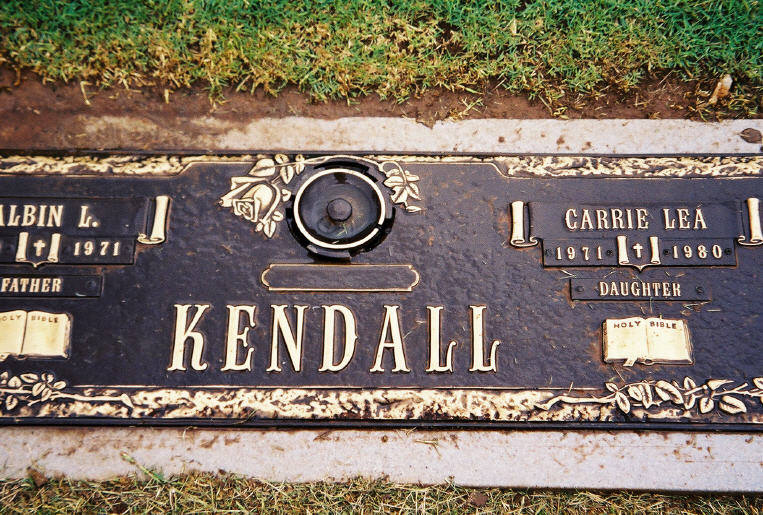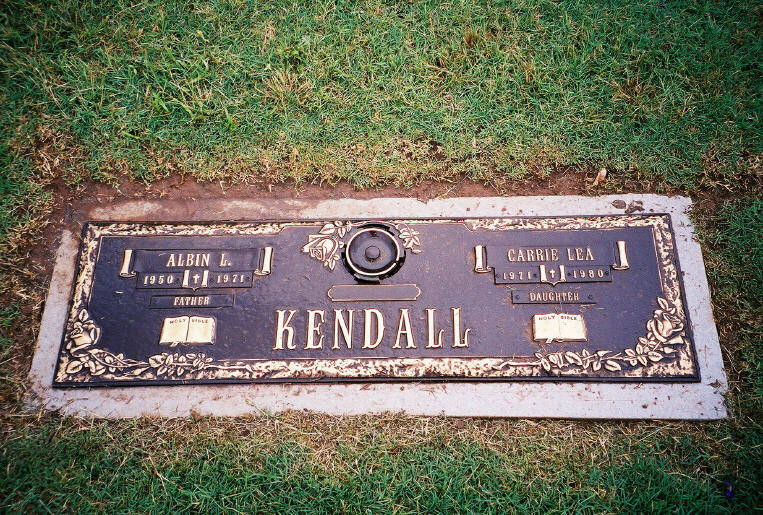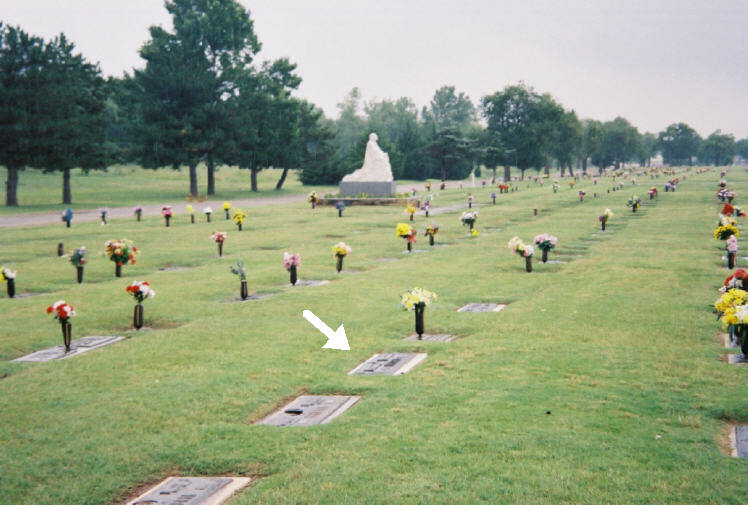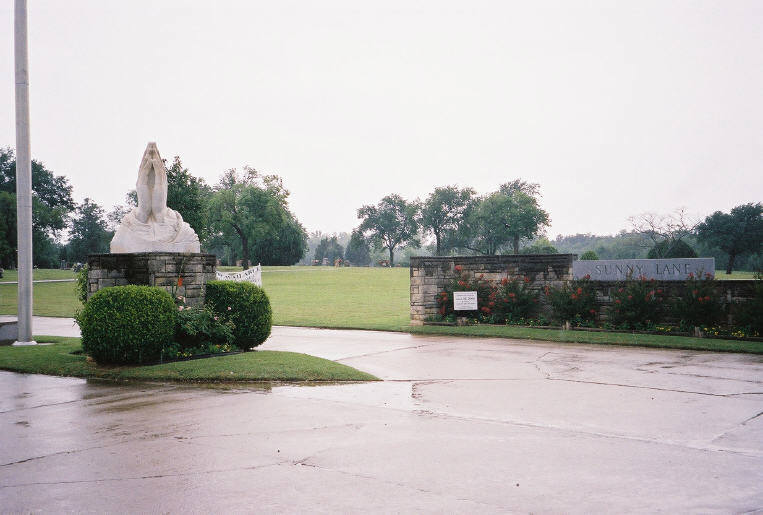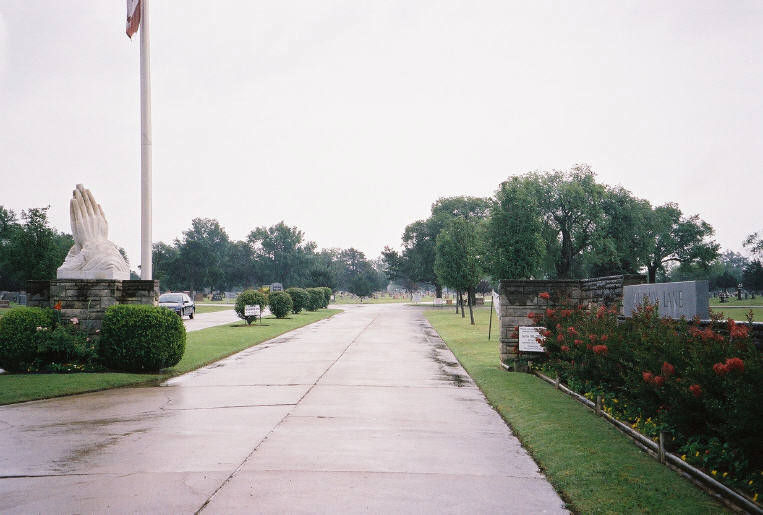Carrie was born on April 7, 1971, in Midwest City, Oklahoma. She moved to Guthrie at the age of 6, a place that should have been a safe haven for the child to explore her budding interests. She attended Fogarty Elementary School and was an active member of the First Southern Baptist Church. With her blonde hair, blue eyes, and an infectious spirit, Carrie was a delightful presence. As a fourth-grader, she was in the age of innocence, the cusp of a promising life stretching out ahead of her. Her youth should have been filled with friends, family, school projects, and dreams of the future.
She was deeply rooted in her community, attending church and actively participating in a variety of activities. She was one of those kids who had the rare ability to light up the room with her smile, a natural connector who could effortlessly make friends. The community of Guthrie, especially the First Southern Baptist Church, was an integral part of her life, a place where she could worship, learn, and grow. There was a real sense that this young girl was destined for great things, whether it was in academics, arts, or any other field that caught her young imagination.
On December 14, 1980, Carrie was sent on a routine errand to buy a newspaper, a mere two blocks from her home. This should have been an uneventful task, one of those little responsibilities that children undertake as they learn about the world. Tragically, it became anything but. She disappeared, sparking a frantic search by the community, friends, and law enforcement agencies. The following morning, she was found in a rural oil field on the outskirts of Guthrie. She had been taken from her community, her family, and this world in an act of inexplicable violence. Her life was stolen in the most horrifying manner, a tragedy that left a gaping wound in the hearts of all who knew her and even those who didn't.
The trial that followed was a web of inconsistencies and accusations, casting shadows over the community that had already suffered an unimaginable loss. Roger Dale Hayes was arrested and faced trial for her murder, not once but twice, due to complications during the initial trial. Defense theories ranged from the bewildering to the horrifying, including allegations of satanic rituals. Accusations flew, dividing a community that should have been united in grief. Ed and Vickie West, Carrie's mother and stepfather, found themselves in a nightmare within a nightmare, having to defend themselves against accusations while mourning their daughter. The defense attorney introduced an alternative theory that involved other family members, bringing additional trauma to an already painful ordeal. It seemed the community was caught in a labyrinth of confusion and sorrow, unable to find a way out.
Despite the sorrowful circumstances surrounding her death, it's essential to remember the vitality and spirit Carrie embodied. The lessons she can still teach us aren't solely steeped in grief and caution but are also a testament to the strength and resilience of the human spirit. We have the opportunity to remember her not just as a victim but as a vibrant young girl who loved her church, was a beacon of joy in her school, and was deeply connected to her family.
In the face of such tragedy, it's tempting to lose faith—in the justice system, in humanity, and even in the belief that our communities can be safe places for our children. Yet, the story of Carrie is also a rallying cry, a wake-up call to each one of us. It's a call to be vigilant, to be active participants in our communities, to know our neighbors, and to protect our children. In a world that can sometimes be unimaginably cruel, it's a reminder that it's our responsibility to add layers of kindness, empathy, and safety wherever we can.
This is the legacy that we can allow Carrie to leave behind—a legacy of action, of community engagement, of protecting the vulnerable. Though her life was cut short, the inspiration we draw from the tragedy can be boundless. For every parent that holds their child a little closer, for every community that becomes a bit safer, for every individual who stands up to protect the vulnerable, Carrie's life echoes.
Her name should not only be synonymous with tragedy but also with a renewed commitment to making the world a safer, kinder place. She is more than a chapter in the annals of criminal justice or a cautionary tale whispered by concerned parents; she is a catalyst for change.
We will remember her. We will honor her. And in doing so, we will strive to ensure that the world becomes a place where children can grow up with the freedom and safety they deserve. Carrie Lea Kendall may have left this world far too early, but her impact can stretch into infinity, touching lives for generations to come.
Written by: Alan Owen
Carrie was born on April 7, 1971, in Midwest City, Oklahoma. She moved to Guthrie at the age of 6, a place that should have been a safe haven for the child to explore her budding interests. She attended Fogarty Elementary School and was an active member of the First Southern Baptist Church. With her blonde hair, blue eyes, and an infectious spirit, Carrie was a delightful presence. As a fourth-grader, she was in the age of innocence, the cusp of a promising life stretching out ahead of her. Her youth should have been filled with friends, family, school projects, and dreams of the future.
She was deeply rooted in her community, attending church and actively participating in a variety of activities. She was one of those kids who had the rare ability to light up the room with her smile, a natural connector who could effortlessly make friends. The community of Guthrie, especially the First Southern Baptist Church, was an integral part of her life, a place where she could worship, learn, and grow. There was a real sense that this young girl was destined for great things, whether it was in academics, arts, or any other field that caught her young imagination.
On December 14, 1980, Carrie was sent on a routine errand to buy a newspaper, a mere two blocks from her home. This should have been an uneventful task, one of those little responsibilities that children undertake as they learn about the world. Tragically, it became anything but. She disappeared, sparking a frantic search by the community, friends, and law enforcement agencies. The following morning, she was found in a rural oil field on the outskirts of Guthrie. She had been taken from her community, her family, and this world in an act of inexplicable violence. Her life was stolen in the most horrifying manner, a tragedy that left a gaping wound in the hearts of all who knew her and even those who didn't.
The trial that followed was a web of inconsistencies and accusations, casting shadows over the community that had already suffered an unimaginable loss. Roger Dale Hayes was arrested and faced trial for her murder, not once but twice, due to complications during the initial trial. Defense theories ranged from the bewildering to the horrifying, including allegations of satanic rituals. Accusations flew, dividing a community that should have been united in grief. Ed and Vickie West, Carrie's mother and stepfather, found themselves in a nightmare within a nightmare, having to defend themselves against accusations while mourning their daughter. The defense attorney introduced an alternative theory that involved other family members, bringing additional trauma to an already painful ordeal. It seemed the community was caught in a labyrinth of confusion and sorrow, unable to find a way out.
Despite the sorrowful circumstances surrounding her death, it's essential to remember the vitality and spirit Carrie embodied. The lessons she can still teach us aren't solely steeped in grief and caution but are also a testament to the strength and resilience of the human spirit. We have the opportunity to remember her not just as a victim but as a vibrant young girl who loved her church, was a beacon of joy in her school, and was deeply connected to her family.
In the face of such tragedy, it's tempting to lose faith—in the justice system, in humanity, and even in the belief that our communities can be safe places for our children. Yet, the story of Carrie is also a rallying cry, a wake-up call to each one of us. It's a call to be vigilant, to be active participants in our communities, to know our neighbors, and to protect our children. In a world that can sometimes be unimaginably cruel, it's a reminder that it's our responsibility to add layers of kindness, empathy, and safety wherever we can.
This is the legacy that we can allow Carrie to leave behind—a legacy of action, of community engagement, of protecting the vulnerable. Though her life was cut short, the inspiration we draw from the tragedy can be boundless. For every parent that holds their child a little closer, for every community that becomes a bit safer, for every individual who stands up to protect the vulnerable, Carrie's life echoes.
Her name should not only be synonymous with tragedy but also with a renewed commitment to making the world a safer, kinder place. She is more than a chapter in the annals of criminal justice or a cautionary tale whispered by concerned parents; she is a catalyst for change.
We will remember her. We will honor her. And in doing so, we will strive to ensure that the world becomes a place where children can grow up with the freedom and safety they deserve. Carrie Lea Kendall may have left this world far too early, but her impact can stretch into infinity, touching lives for generations to come.
Written by: Alan Owen




